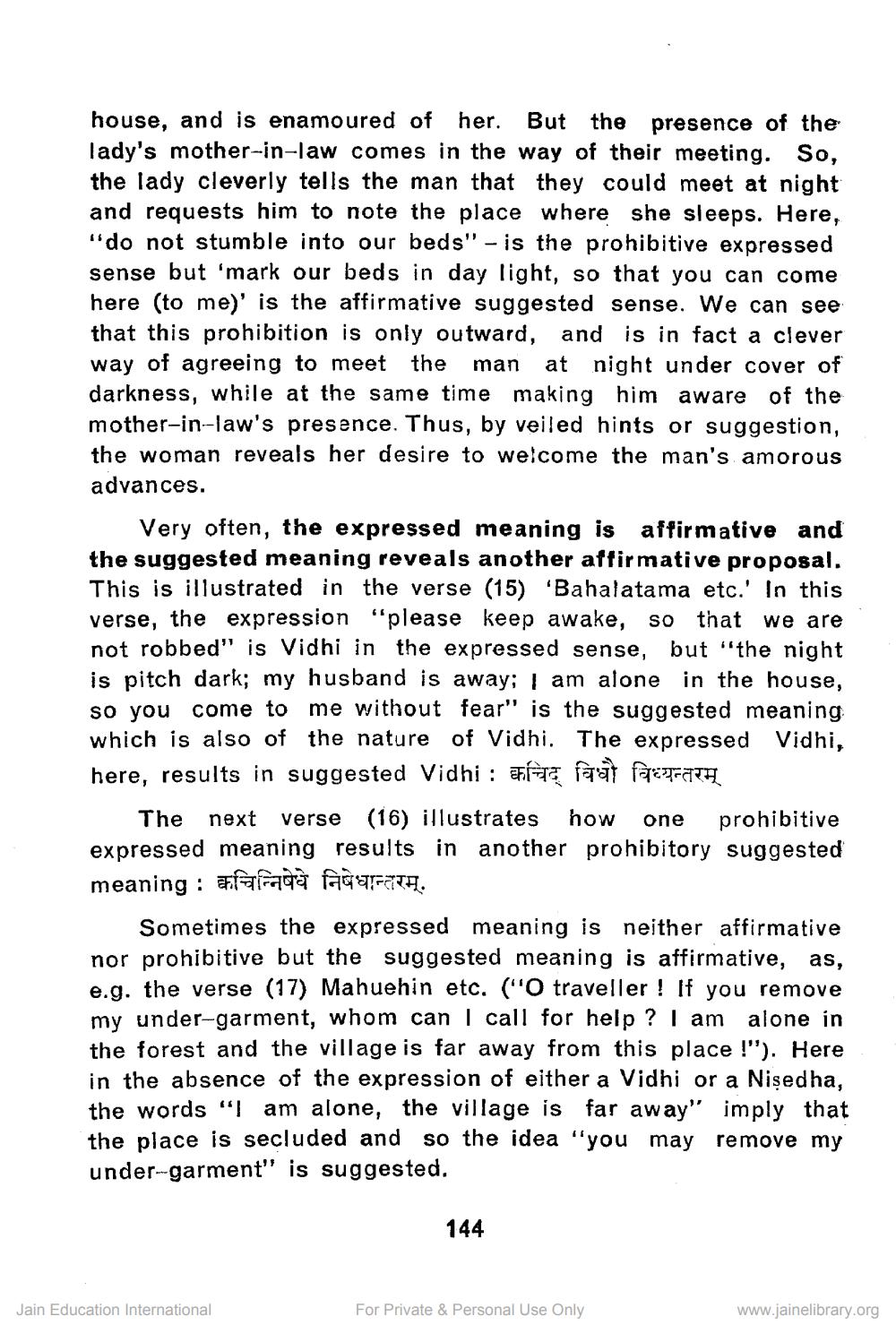________________
house, and is enamoured of her. But the presence of the lady's mother-in-law comes in the way of their meeting. So, the lady cleverly tells the man that they could meet at night and requests him to note the place where she sleeps. Here, "do not stumble into our beds" - is the prohibitive expressed sense but 'mark our beds in day light, so that you can come here (to me)' is the affirmative suggested sense. We can see that this prohibition is only outward, and is in fact a clever way of agreeing to meet the man at night under cover of darkness, while at the same time making him aware of the mother-in-law's presence. Thus, by veiled hints or suggestion, the woman reveals her desire to welcome the man's amorous advances.
Very often, the expressed meaning is affirmative and the suggested meaning reveals another affirmative proposal. This is illustrated in the verse (15) 'Bahalatama etc.' In this verse, the expression "please keep awake, so that we are not robbed" is Vidhi in the expressed sense, but "the night is pitch dark; my husband is away; I am alone in the house, so you come to me without fear" is the suggested meaning which is also of the nature of Vidhi. The expressed Vidhi, here, results in suggested Vidhi : f fat fact
The next verse (16) illustrates how one prohibitive expressed meaning results in another prohibitory suggested meaning : facra fagaratą.
Sometimes the expressed meaning is neither affirmative nor prohibitive but the suggested meaning is affirmative, as, e.g. the verse (17) Mahuehin etc. ("O traveller ! If you remove my under-garment, whom can I call for help ? I am alone in the forest and the village is far away from this place !"). Here in the absence of the expression of either a Vidhi or a Nişedha, the words "I am alone, the village is far away" imply that the place is secluded and so the idea "you may remove my under-garment'' is suggested.
144
Jain Education International
For Private & Personal Use Only
www.jainelibrary.org




